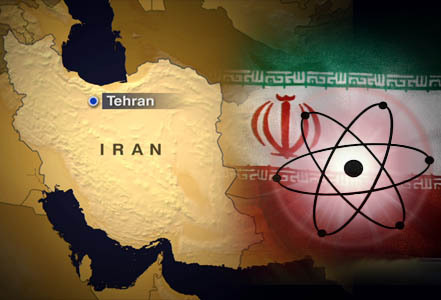I have been monitoring the negotiations between the Iranian government and six major world powers consisting of the United States, Russia, Germany, France, Britain and China over Iran's nuclear program. Iran did have a deal with the European Union from 2004 to suspend uranium enrichment but had repeatedly threatened to resume enrichment in violation of the agreement. In order to put pressure on Iran to suspend uranium enrichment that could lead to weapons grade uranium and to submit to international inspections, the six negotiating nations have maintained severe sanctions on trade with Iran. Now the parties are negotiating on reaching an agreement on the framework for a final settlement this month. The final settlement would be signed by the end of June.
On March 9th, forty seven Republicans signed a letter to the Iranian government authored by a freshman Senator named Tom Cotton. Basically the letter says that whatever deal is settled upon in the negotiations better be acceptable to the Republicans in the U.S. government or the next Republican in the White House will just cancel the agreement. The Iranians pointed out that if the United States President signs an agreement with other nations, it has the force of international law and cannot be simply ended with the stroke of another President's pen.
The hard-liners in Iran pointed to the letter as proof that the U.S. does not negotiate in good faith and cannot be trusted. The other nations that are part of the negotiation were upset by the letter. If a deal cannot be reached with Iran because of U.S. confusion and infighting between political factions, the other nations may drop the Iran sanctions and end any chance of a new agreement on curtailing Iran's uranium enrichment in the near future.
U.S. law and tradition place the power to negotiate with foreign powers squarely in the hands of the President. Congress is to advise but the President defines the agreements. Some critics of the Republican letter have cited an old law called the Logan Act dating from the founding of the U.S. However, that law says that people who have no authority in the U.S./ government cannot negotiate with foreign powers. An argument could be made that they do have some authority because they are Congressmen. Others say that the Republicans are guilty of treason but that is not possible because that charge can only be leveled if the U.S. is in a declared war with another country and it is not.
While the forty seven Republican who signed the letter may not be guilty under the Logan Act or laws pertaining to treason, it is clear that they are interfering with President Obama's ability to negotiate an acceptable arrangement with Iran and the other six nations. A recent article pointed out that while Republicans have sharply criticized a previous U.S. deal with North Korea to halt its nuclear program as being a failure, supporters of the agreement respond that the N.K. nuclear activities were curtailed for ten years because of the U.S. deal. If we can slow Iran's potential to build anuclear weapons for a similar period, then the current negotiations should be considered a success.
